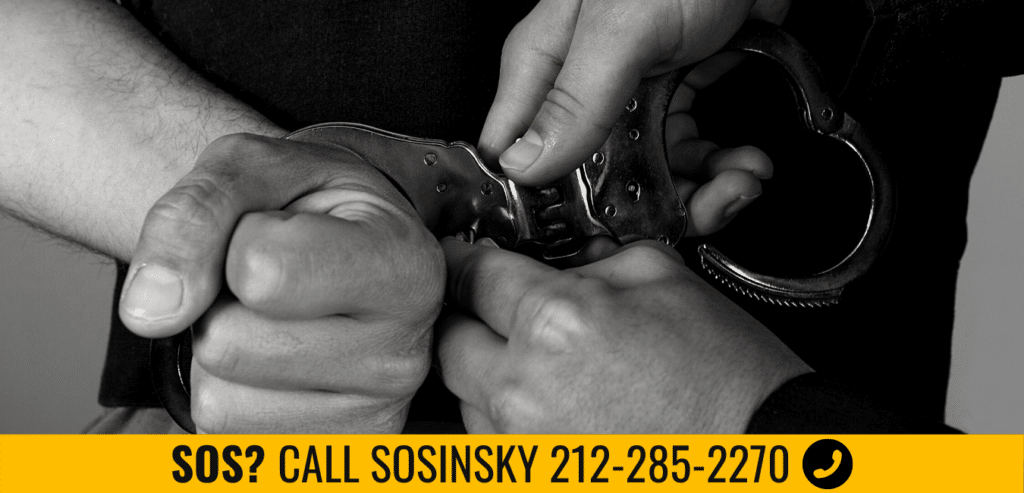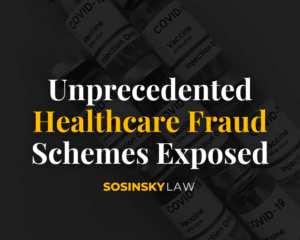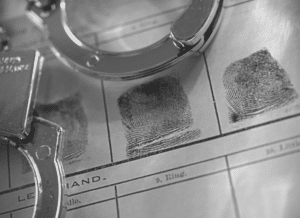NYC RICO Defense Attorney
RICO Defense Attorney In New York City
The acronym RICO typically falls under the category of any organization or enterprise that illegally receives money as a byproduct of racketeering. When an inclined criminal either alone or with others offers to resolve a problem they created in hopes of profiting, this is known as racketeering. RICO laws exist to penalize those criminals who use systematic means to create and perpetuate “problems” with the intention of solving them for personal financial or material gain. If you are being accused of violating RICO statutes, contact our New York City RICO defense attorney at Sosinsky Law as soon as possible.
If you are being charged with a RICO crime, then you need the best criminal defense lawyer on your side. With over 30 years of experience, our Frederick Sosinsky will fight tooth and nail for your rights and future. We believe in achieving success and will work hand-in-hand with you to obtain the best possible outcome given the circumstances. Contact our office today for a free consultation and to learn more about how we can help.
Enterprise Corruption Under New York Law
New York lawmakers have passed a series of laws in addition to those promulgated by the federal government prohibiting organized crime-related activities, also known as enterprise corruption. According to state law, enterprise corruption has been committed when:
- Intentionally conducted or participated in a pattern of criminal activity; or
- Intentionally acquired an interest in or control of an enterprise by participating in a specific pattern of criminal behavior; or
- Participated in a pattern of criminal activity and invested proceeds derived from those activities in the enterprise.
In order to be convicted of participating in a pattern of criminal activity, prosecutors must be able to show that the accused:
- Committed two felony acts other than conspiracy;
- Committed two criminal acts, one of which was a felony offense, within five years of the enterprise’s commencement; and
- Committed three separate acts of illegal participation in a criminal enterprise, all of which occurred within three years of each other.
If you are caught committing enterprise corruption in New York, you will be charged with a Class B felony. The maximum punishment for this is 25 years in prison unless the individual was armed during the commission of the crimes. If that’s the case, then his or her charges could be upgraded to Class A-I, which comes with a life sentence. If you are accused of enterprise corruption, it is essential to immediately contact a knowledgeable fraud defense lawyer who can explain the law’s limitations and help you build a solid legal defense.
RICO Charges Under Federal Law
There are many illegal fraud-based activities under both New York and federal law. For example, it is against the law to be part of an organization whose activities affect interstate commerce if you help with that company’s affairs in any way, including:
- A pattern of racketeering; or
- The collection of unlawful debt.
If a person wants to qualify as part of a pattern of racketeering, they must have committed two or more acts within the past two years. RICO laws were established in the 1970s to target organized crime rings working in America, however now Rico is used more broadly against different types of misconduct. Racketeering activity covers a wide range of criminal activities, from extortion and bribery to kidnapping and arson. If you are convicted of racketeering, you will face a minimum sentence of two-and-a-half years in jail and a $25,000 fine. So if you are being investigated for involvement in a criminal enterprise, it is vital to seek legal representation from an NYC RICO defense lawyer as soon as possible.

Common Types Of Racketeering Charges
The Racketeer Influenced and Corrupt Organizations Act, or RICO, is a law that enables federal prosecutors to go after people they suspect of being involved in organized crime. RICO charges are serious—they’re felonies, and if you’re convicted, you could face up to 20 years in prison. Plus, the prosecutor can add other charges on top of the RICO charge. Here are some of the criminal activities that fall under RICO:
- Arson
- Bankruptcy fraud
- Bribery
- Counterfeiting
- Drug trafficking
- Embezzlement
- Engaging in activities involving obscene materials
- Extortion
- Fraud
- Kidnapping
- Money laundering
- Obstruction of justice
- Racketeering
- Robbery
- Securities fraud
- Murder
- Terrorism
Penalties Under The RICO Act
If convicted of a RICO violation, you not only risk 20 years in prison but also face a fine of $250,000 or double the amount of any proceeds gained from criminal activity. The possible prison sentence could be extended to life depending on the severity of the offense committed.
RICO was established with the worry that, before a final judgment could be issued, any assets related to the enterprise would vanish. With RICO’s procedural rules, though, the government is able to freeze a defendant’s assets before the trial even starts. The logic here is that making the government wait until after a guilty verdict has been given leaves time for these assets to be hidden away more carefully.
If the defendant is convicted, they will lose all interest in the enterprise to the government. The loss of these assets can severely damage or dissolve the enterprise. RICO charges are serious and require a skilled and aggressive defense. Contact our experienced New York City RICO defense attorney today to learn more about how we can help.
Frequently Asked Questions
What Are The 3 Types Of Racketeering?
- Business Racketeering – Organized crime can use legitimate businesses as fronts for illegal activities such as gambling, extortion, money laundering, or loan-sharking. For example, a drug dealer might use drug-trafficking proceeds to operate a legitimate business, or an organized crime figure might intimidate a business owner into selling the business to the criminal, who then uses it for loan-sharking or predatory loans.
- Labor Racketeering – Labor racketeering is a type of crime in which criminals try to control or influence unions, employee benefit plans, or workforces for their own personal or financial gain. This could involve extortion, where the criminal threatens disruption unless they are paid off, or asking for bribes from an employer in exchange for ignoring a union contract. Other labor racketeering crimes include defrauding benefit plans.
- Cyber-Racketeering – Although it may not be as well-known, racketeering can take place online quite frequently, cyber-racketeers are part of criminal organizations that use hacking tools to swindle money and data from people, businesses, and even government agencies. People who have taken part in phishing emails or fraudulent auctions on sites like eBay have been federally charged with racketeering before.
What Is Racketeering Activity?
Racketeering activity, as defined by the RICO law, includes both certain federal crimes and state offenses. The listed federal crimes include drug trafficking, bribery, mail and wire fraud, bank fraud, extortion, and money laundering. As for specific State offenses that fall under racketeering activities, “bribery offenses” are crimes commonly associated with local or state officials who corruptly use their power for private gain.
Contact Our NYC RICO Defense Attorney Today
You can’t afford to wait if you’ve been charged with a RICO crime. Contact our office as soon as possible to speak with our NYC RICO defense lawyer to begin building your defense. Sosinsky Law has this kind of case experience in New York that totals up to many decades. We are therefore confident in handling any cases brought before us by clients like you.
At our criminal defense firm in New York, we make it a point to get to know each of our clients and their case intimately. We believe that the best way to achieve success is by thinking outside the box and working together with our clients through every step of their proceedings. This way, they can be as prepared as possible for whatever may come up and feel confident about any decisions made concerning their future.
SOS? CONTACT SOSINSKY
NYC Criminal Defense

Unprecedented Healthcare Fraud Schemes Exposed
Unprecedented Healthcare Fraud Schemes Exposed: A Glimpse into the Recent DOJ Crackdown In a groundbreaking move, the Department of Justice has unveiled criminal charges against

Conspiracy Charges in NY
NYC Conspiracy Crime Lawyer Conspiracy charges in NY are valid when two or more parties make a clear agreement to engage in criminal activity. Under
